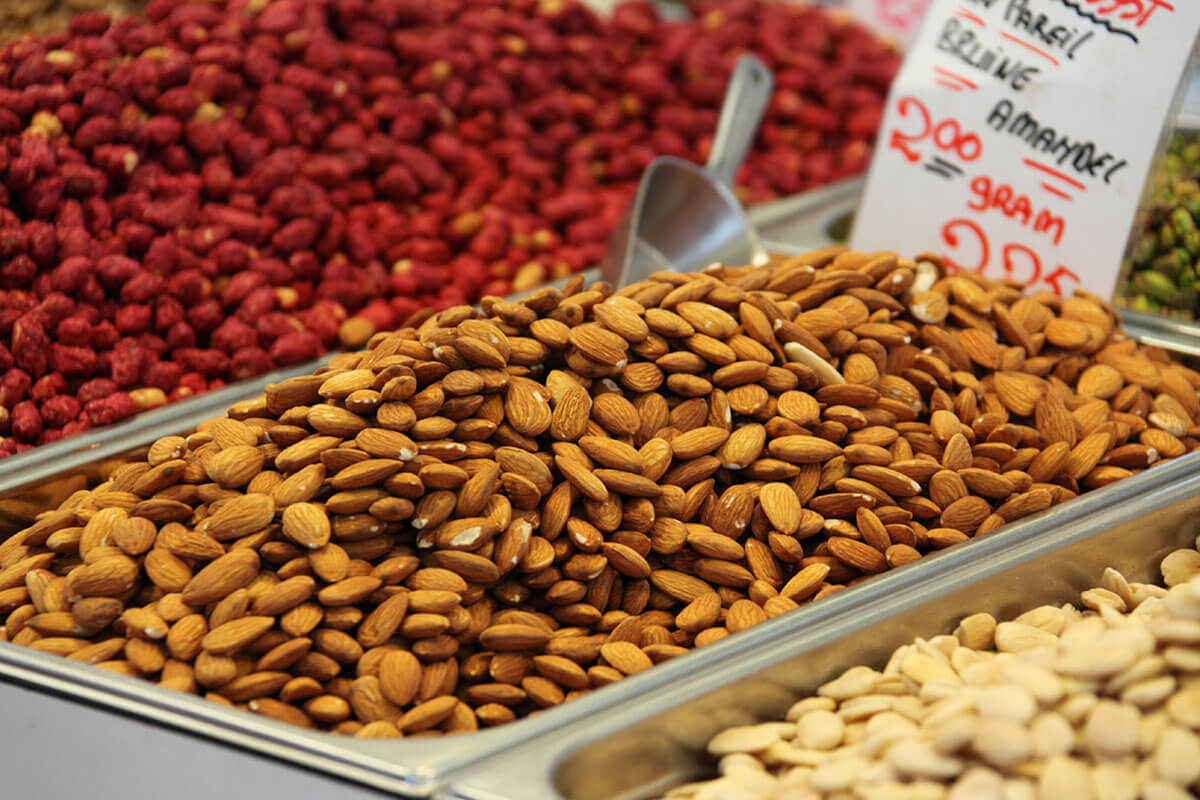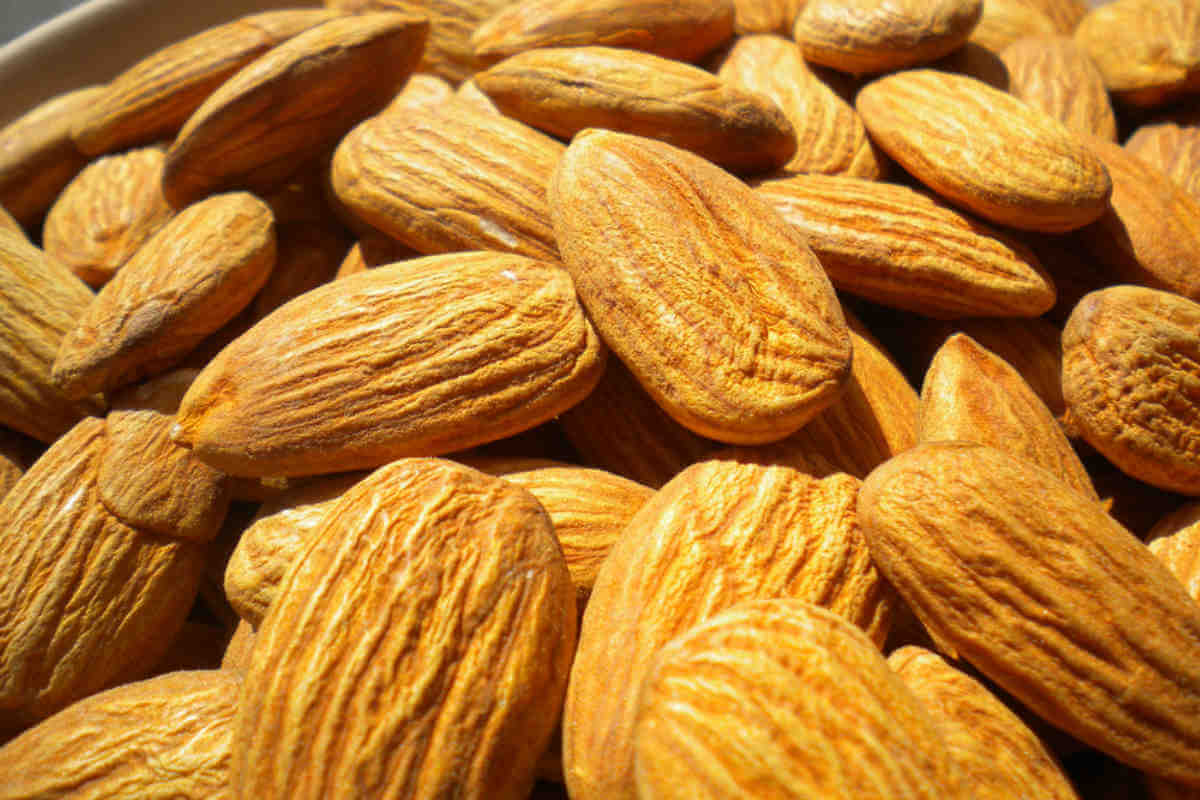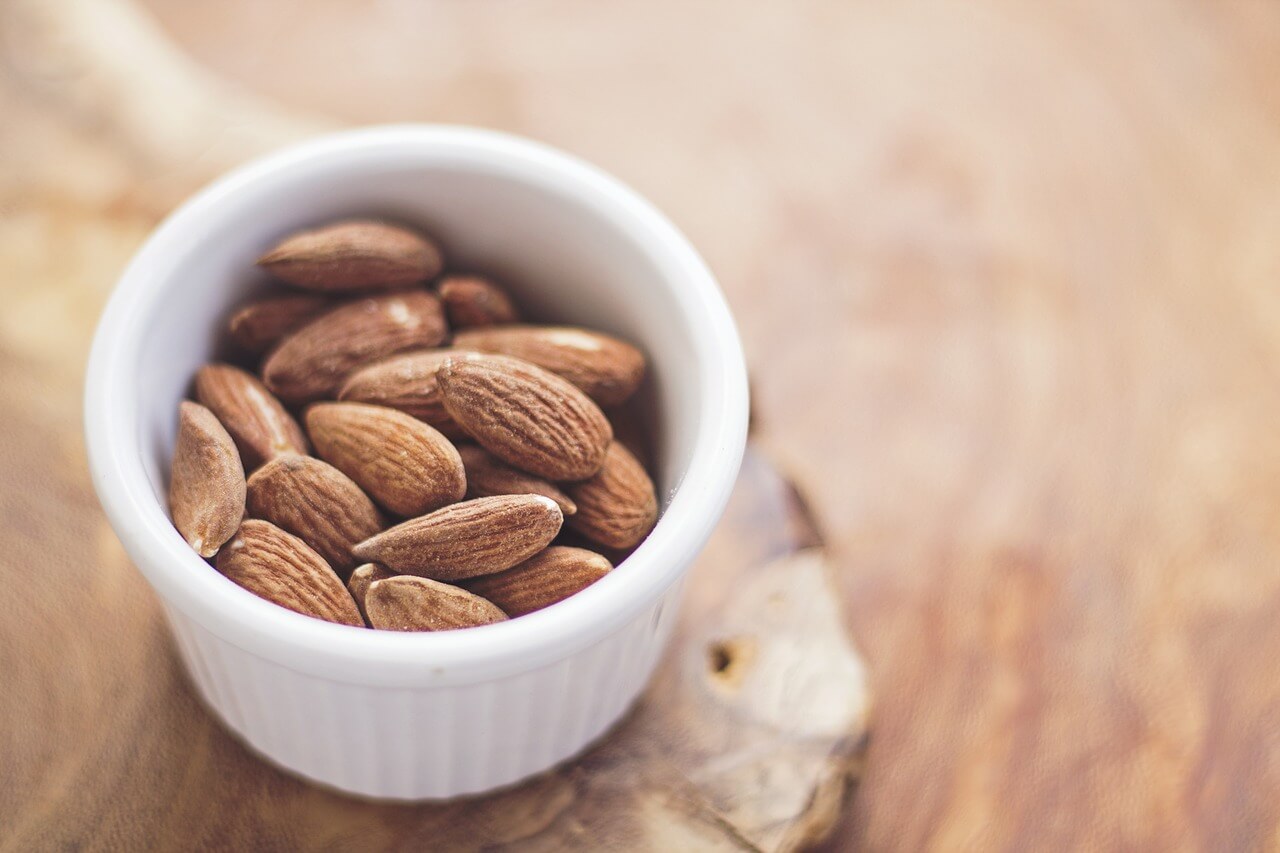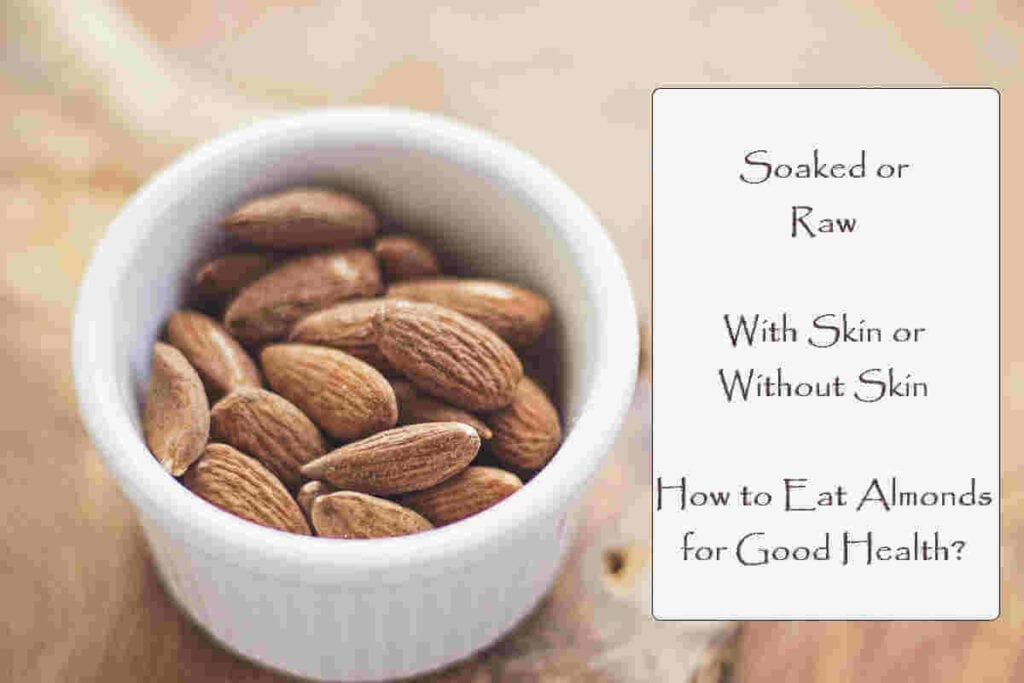Food & Nutrition, Healthy Snacks, Superfoods
Benefits of almonds: Energy booster, full of good fat, high fibre and a lot more!
Medically reviewed by Darshita Thakkar, Nutrition Training and Quality Manager for PAN India
Almonds or badam are one of the most nutritionally dense tree nuts. The benefits of almonds are quite immense that including them in your regular diet can have immense benefits on your health.
While almonds are praised to confer good health for ages, we will tell you about the benefits and nutritional value of almonds.
- Almonds help in maintaining a good heart health.
- Riboflavin and L-Carnitine present in almonds help prevent neurological decline.
- Antioxidant vitamins and protective vitamin A help in keeping the skin supple.
- Almond helps balance the rise in pH. Hence they are good for the gut.
- Are almonds good for weight loss? A BIG yes! Good fats coupled with dietary fibre make almond one of the best bets for weight loss.
- Almond is full of vitamins and minerals like magnesium, making it a great food for the hair.
Soaked Almond Nutrition versus Raw Almond Nutrition; which to choose!
They provide an array of essential nutrients and powerful phyto-chemicals such as Vitamin E, monounsaturated fatty acids, essential amino acids, fiber, biotin, potassium, magnesium, and manganese.
While raw almonds offer one kind of nutritional benefits, soaked almonds provides a different kind of nutrition. To uncover all the health benefits and nutrition of almonds, they need to be soaked overnight or for 8 hours before consumption.

The brown skin of badams contains an enzyme inhibitor that protects them until germination. Usually, for nuts and seeds, enough moisture and natural light are required for germination. Soaked almonds are better because the moisture releases badam’s health benefits by removing the enzyme inhibitor to improve nutrient availability.
Still wondering how to incorporate almond nutrition in your diet? Ask a Possible Nutritionist for FREE! Click on the link and get started.
In addition, raw almonds contain anti-nutrients such as phytates and tannins that bind the nutrients in the gastrointestinal tract and make them unavailable in the intestine. Soaking badams can lower these anti-nutrients considerably and improve the absorption and utilisation of the essential nutrients.
Not just that, eating soaked almonds with improve the taste and how they feel in the month. Another advantage is, soaked almonds are easy to digest by everyone belonging to different age groups.
An Indian study found that soaked almonds’ nutrition is way better because it contains two times more protein than the raw almonds. Another benefit of almonds is that it is high in protein and hence can be eaten as a snack or first thing in the morning.
Myth about the Almond skin
Should you discard the skin for better benefits?
Many believe that after soaking, the skin of the almonds needs to be peeled and only the kernel needs to be eaten.
Almond skin, also called almond bran, has high amounts of fibre, a nutrient useful in fermentation in the large intestine for a healthy gut. Badams with skin provide 12% of total fibre making it one of the richest sources of edible nuts.

Almond skin contains good amounts of polyphenols that are antioxidants and may play a role in reducing chronic inflammatory diseases.
A study published in the Journal of Nutrition showed that almond skin has 20 potent antioxidant flavonoids. These flavonoids team up with the vitamin E found in the almond meat or kernel to double the antioxidant punch.
How many almonds can be taken in a day?
Almonds can provide ample of energy even though the size and servings are small. For good health, you can consume 5-6 soaked almonds in a day.
Another study published in the European Journal of Clinical Nutrition found that whole almonds, as part of a heart-healthy diet, can reduce the C-reactive protein, a marker of artery-damaging inflammation as much as a statin drug. Not just for adults, almonds and other nuts also qualify to be a great nutritious snack for children.
So the next time you soak almonds have them without discarding the skin.
How do you soak almonds?
Take a handful of almonds and soak them in a bowl of water after rinsing. Leave the almonds overnight at room temperature covered. The soaked almonds can be consumed with skin.
Almond Nutrition and Almond Health Benefits

1. Are almonds good for your heart?
Aren’t almonds in the same category as cashew? Almonds with monounsaturated fatty acids, vitamin E, and other antioxidants, support heart health greatly.
Arginine, magnesium, and potassium are some of the key nutrients present in almonds which are important for a healthy heart.
2. Almond nutrition and brain health
Almonds support brain health as they contain Riboflavin (Vitamin B2) and L-carnitine, two important nutrients for neurological activity and preventing a decline in the memory.
3. Almond nutrition and skin
Almonds are great for skin with a good dose of vitamin E and other antioxidants that nourish the skin and prevent ageing.
4. Almond nutrition and the gut
Almonds help with digestion by alkalizing the digestive tract. It reduces the acid build-up and balances the body pH.
5. Almond benefits: are almonds good for weight loss?
Almonds with healthy fats and a good amount of dietary fibre have a low glycemic index and provide high satiety. These can prevent overeating and unhealthy snacking. This makes almond an ideal food for weight loss.
Since badams provide healthy fats and are gluten free, you can add it to your weight loss diet without having any second thoughts.
6. Almonds Good for Hair?
If almond oil is touted to be the ultimate oil to prevent hair fall and hair breakage, then the parent almond should have many more health benefits.
For one, they are rich in the mineral magnesium, a deficiency of which can cause hair fall. Also, the protein and vitamins E in almonds help hair growth and maintenance.
Submitted By,
Suhasini Mudraganam
Chief Nutritionist, Possible
Suhasini Mudraganam is a leading food scientist who was instrumental in designing the Possible Food plan. She has done her MS in Nutrition from University of Missouri, USA and has over 14 years of global experience.


I’ve read that vitamin E is really good for maintaining health skin and hair. The article mentions that almonds contain a good dose of vitamin E to give you those benefits. Does it matter if the almonds are raw or roasted? I’d be curious to know if any treatments alter the vitamin content. http://www.wildsoilalmonds.com/products/raw-almonds
Hi John,
The dry roasted nuts are found to have slightly higher calories and fat and slightly lower protein and fibre contents. However, this difference can be neglected, if you really like roasted nuts. But the dry roasted almonds do contain less vitamin E. This makes them have less antioxidant potential than their raw versions.
Very nice article. Thanks for sharing
Hi Akshay! You are welcome. Keep following our blog to know more health information.